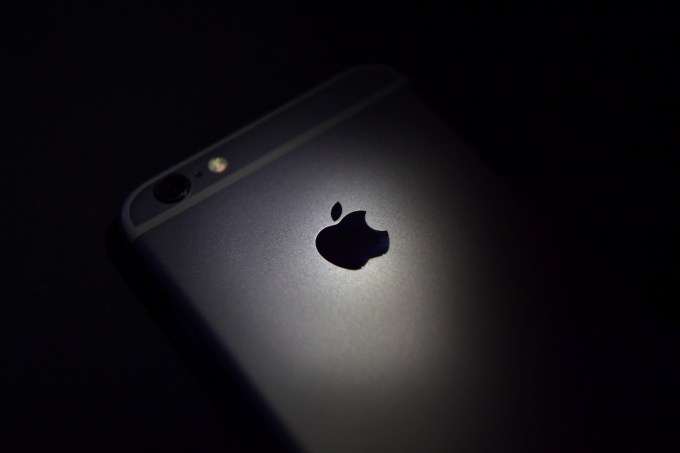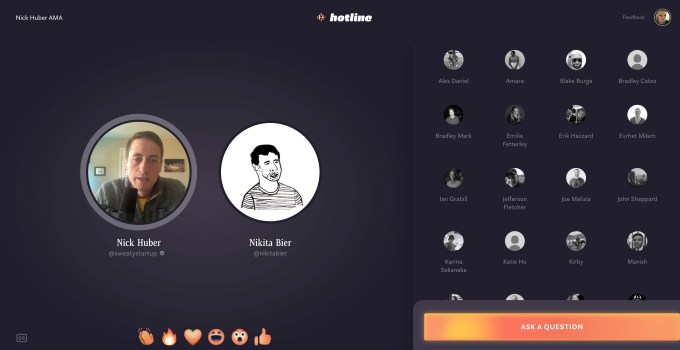
Welcome back to This Week in Apps, the weekly TechCrunch series that recaps the latest in mobile OS news, mobile applications and the overall app economy.
The app industry is as hot as ever, with a record 218 billion downloads and $143 billion in global consumer spend in 2020.
Consumers last year also spent 3.5 trillion minutes using apps on Android devices alone. And in the U.S., app usage surged ahead of the time spent watching live TV. Currently, the average American watches 3.7 hours of live TV per day, but now spends four hours per day on their mobile devices.
Apps aren’t just a way to pass idle hours — they’re also a big business. In 2019, mobile-first companies had a combined $544 billion valuation, 6.5x higher than those without a mobile focus. In 2020, investors poured $73 billion in capital into mobile companies — a figure that’s up 27% year-over-year.
This Week in Apps will soon be a newsletter! Sign up here: techcrunch.com/newsletters
This week we’re looking into the upcoming Apple lawsuit with Epic Games over App Store fees, the soon-to-launch game changer that is App Tracking Transparency and Facebook’s latest attempt to take on Clubhouse, among other things.
The Epic Games versus Apple trial is nearing launch. The trial, which begins May 3 and is expected to drag on for weeks, will see the Fortnite maker attempting to argue that Apple’s control over the App Store — and the 30% commission it requires on in-app purchases — represents anti-competitive behavior from a monopoly that requires regulation under antitrust law. Apple, meanwhile, feels confident that it can demonstrate its not a monopoly as it faces competition across the market, not just in its App Store. It will also likely point to the commission decreases it recently made in the wake of the increased regulatory scrutiny. Apple now takes a smaller 15% cut from developers making less than $1 million in revenues.
New filings this week detail Epic’s long-term program “Project Liberty,” which describes how Epic planned its antitrust battle by forcing app stores to reject Fortnite for circumventing their payment mechanisms. A filing from Epic also references comments by Apple’s senior vice president of Internet Software and Services Eddie Cue, senior vice president of software engineering Craig Federighi and Apple Fellow Phil Schiller that talk about how Apple locks users into its ecosystem with its services, including iMessage. Epic also argues that Apple uses security as a “pretext” for its commissions — even as a recent series of allegations (and threat of a lawsuit) from app developer Kosta Eleftheriou have demonstrated that Apple’s vetting process is failing to stop massive scams. Epic also says that allowing Apple to serve customers’ refund requests leads to fraud because it doesn’t have the same visibility into the developer’s content that the developer itself does.

LONDON, ENGLAND – AUGUST 03: The Apple logo is displayed on the back of an iPhone on August 3, 2016 in London, England. (Photo by Carl Court/Getty Images)
With the public release of iOS 14.5, which is expected soon, Apple will be shaking up the app economy with the launch of its App Tracking Transparency framework, or ATT. This requires iOS apps to begin prompting users for permission to track their users’ activity, instead of just quietly doing so — generally without the user’s informed consent. Apple has said developers can explain in this prompt why they’re asking for this permission — for example, because they want to serve more personalized ads, perhaps. Tech giants like Facebook and Google, as well as many other ad-supported apps (and particularly social media apps), will be impacted by the change. Some have even gone so far as to try to find workarounds using non-IDFA methods, it’s been reported (IDFA being the current system that assigns a unique advertising ID to each device that is then tracked across the apps and websites a user visits). It was revealed last week that Snapchat had investigated an IDFA alternative known as probabilistic matching, but claims it was just a “test.” Meanwhile, China’s largest tech companies — including Baidu, Tencent and ByteDance — have been exploring a state-backed IDFA alternative CAID.
This week, Apple made it clear that “no tracking” without permission means just that. It says that if a user opts out of any IDFA-tracking via the pop-up, that means the developer doesn’t have permission to track using any other sort of identifiers either — like hashed email addresses or whatever other workaround developers come up with.

Image Credits: Hotline
Facebook’s internal R&D group, NPE Team, this week launched its latest experiment, Hotline, into public beta testing. The web-based application could be described as a mashup of Instagram Live and Clubhouse, as it allows creators to speak to an audience who can then ask questions through either text or audio. However, unlike Clubhouse, creators can opt to turn their cameras on for the event, instead of being audio-only. Currently, users sign in with Twitter and then verify their phone number to authenticate with the app. They can then type in their question to submit it to the speaker, who pulls them “on stage” to discuss. For now, the participants were audio-only and represented by a profile icon, but settings suggest that Hotline will test video for users in the future.
As the questions are asked, users can react with emoji, including clapping hands, fire, heart, laughter, surprise and thumbs up. And most importantly, unlike Clubhouse, Hotline events are recorded. Creators get both an audio and video recording that they could edit and upload elsewhere, including on other social networks. Because of its use of video, upvoted questions and recording, the app has a different vibe than Clubhouse — it feels more like a virtual event than a more casual space. Facebook is catering to this audience, too, by seeking out creators who are focused on doling out professional advice, it says.
Of note, Hotline is being led by Eric Hazzard, who joined Facebook when it acquired his app tbh, a positivity-focused Q&A app.